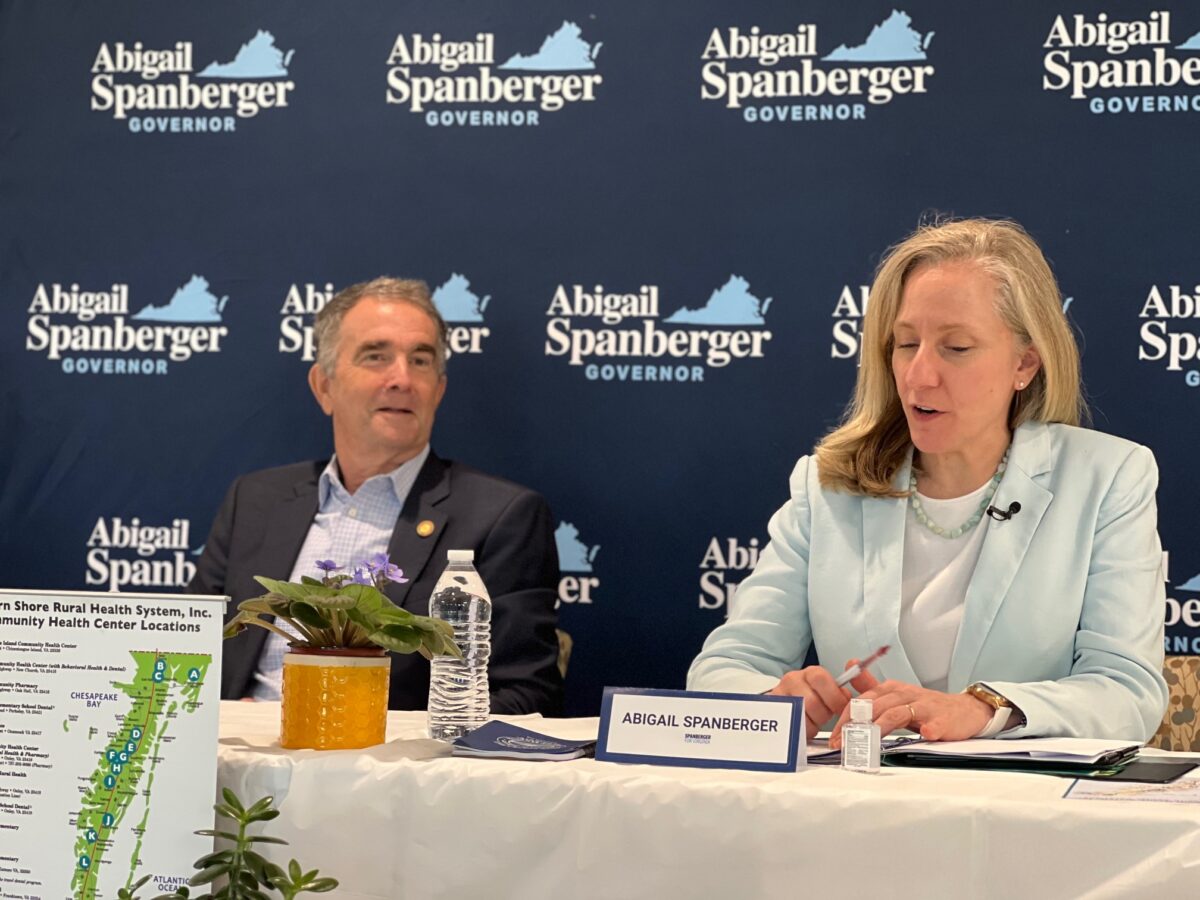
Abigail Spanberger, Virginia’s Democratic candidate for the upcoming governor’s race, campaigned on the Eastern Shore Saturday, holding a well-attended event at the Mary Nottingham Smith Cultural Enrichment Center before meeting with healthcare professionals at Eastern Shore Rural Health in Eastville to discuss cuts to Medicaid.
The roundtable, attended by former Governor Ralph Northam — an Accomack County native and physician — brought together hospital administrators, community health center executives, free clinic leaders, and public health advocates. The focus was on the potential impacts of Medicaid cuts, subsidy reductions, and new work requirements included in a bill recently passed in Washington.
Representing the Eastern Shore on the panel were Nick Chuquin of Riverside Shore Memorial Hospital; Jeanette Edwards, CEO of Eastern Shore Rural Health; Joan Lingen, Chief Medical Officer at Eastern Shore Rural Health; and Mimi Seget, Executive Director of the Eastern Shore Community Services Board.
Spanberger warned that more than 320,000 Virginians could lose healthcare coverage due to the changes, including thousands on the Eastern Shore who rely on Medicaid or subsidized marketplace plans. Across Virginia, at least six rural hospitals — some heavily dependent on Medicaid — are considered at risk of closure, she said.
Chuquin noted that the level of care would not change immediately at the local hospital because the cuts would not take effect right away, but said Riverside is already planning for anticipated changes in reimbursement for Medicaid-eligible patients.
Eastern Shore Rural Health, which operates multiple community clinics, reported that 43 percent of its patients are either on Medicaid or uninsured, and that any reduction in coverage would force more patients into sliding-scale programs the organization cannot fully fund.
Northam, who served as governor when Virginia expanded Medicaid in 2018, emphasized that the expansion not only provided coverage to over 600,000 Virginians but also stabilized rural healthcare systems. “If we weaken systems like Eastern Shore Rural Health and Riverside, families will leave, businesses won’t come, and recruiting medical providers will become nearly impossible,” he said.
Other speakers stressed the importance of creative and proactive approaches to lessen the impact on residents, particularly in times of crisis. The discussion centered on maintaining access to critical resources such as healthcare, workforce stability, and family support systems.
Participants also warned that delays in preventive healthcare — including screenings like mammograms and colonoscopies — can lead to more serious diagnoses and higher treatment costs if early intervention is missed. The conversation included potential programs that could be implemented at the state and local levels, rather than relying solely on federal funding.














